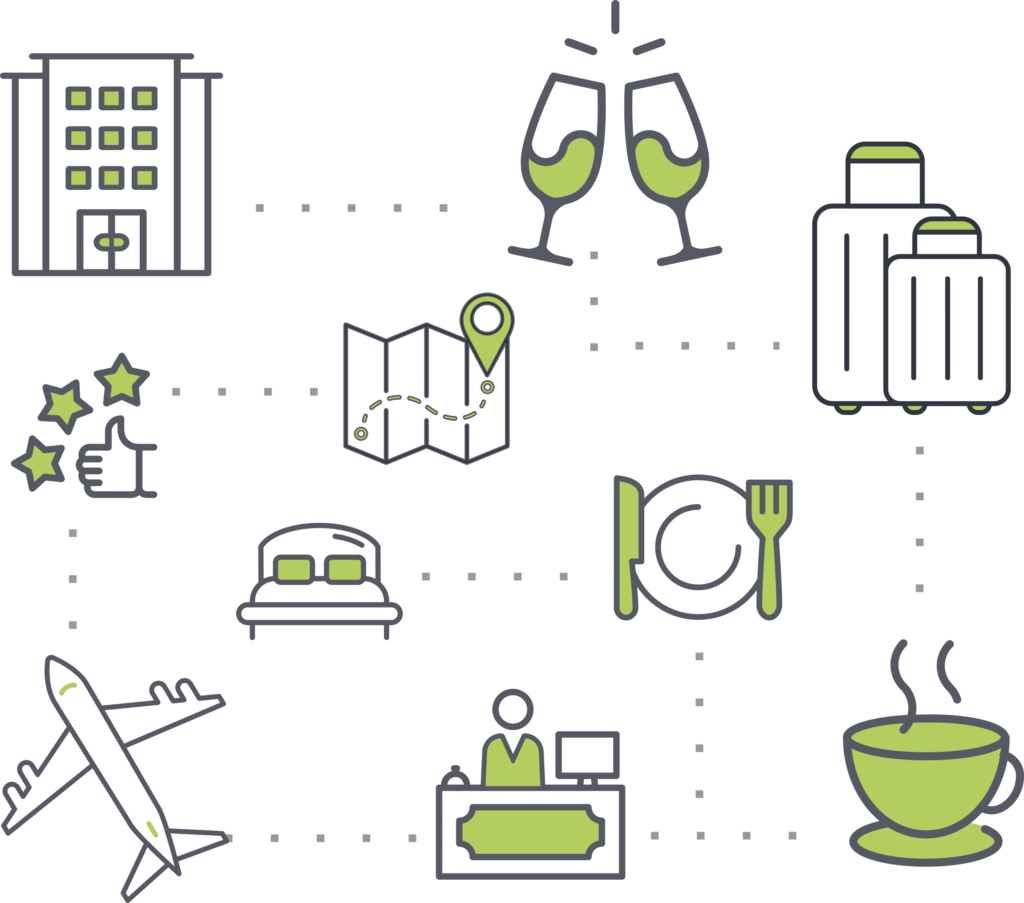Or call (800) 686-8664
insurance for the hospitality industry

tailored coverage for:
- Full Service Hotels
- Franchise Hotels
- Boutique Lodging
- Spa and Golf Resorts
- Conference Centers
- Non-Franchised Hotels
- Dining, Bar and Entertainment
- Resorts
- Bed & Breakfasts
- And more..
You can qualify for this program even if your operation offers:
- Golf Courses and Spas
- Outside Egress
- Bar/Tavern
- Delicatessen and Cafe
- Including Delivery Vehicles
- Craft Beverage
- Catering and Food Trucks
- New Construction – Builders Risk
Share This Page:
coverage that will have you staying awhile
Owning and operating your hotel comes with a number of rewards – however, this does not come without risks. You and your team have worked hard to make sure each guest’s stay is top notch yet the biggest threats to your business can be protected by the right insurance program. Running a successful hotel is your expertise – insuring your hotel is ours.
We insure franchise hotels, motels, resorts and many other hospitality businesses throughout the United States. We work with the top insurers in the country including exclusive hotel insurance programs with specialized coverage. Read below to learn more or get in touch with our team to begin your customized solution.
This Hospitality insurance guide will help you:
- Understand how insurance companies determine coverage and premium specifically for hotels, motels, and resorts.
- Get an idea of how much coverage you should consider.
- Learn about suggested coverage options.
- Note typical exclusions to watch out for.
Insurance companies determine coverage for the hospitality industry by considering various factors that are unique to hotels, motels, and resorts. These factors help insurers assess the level of risk associated with providing coverage to businesses in the hospitality sector. Here are some key considerations:
Property Size and Type: The size and type of your property play a significant role in determining coverage. Insurance companies assess factors such as the number of rooms, facilities, amenities, and the overall value of the property.
Location and Geographic Factors: The geographical location of your property affects insurance coverage. Factors such as the property’s proximity to the coast, flood zones, or areas prone to natural disasters can impact the level of risk and the type of coverage needed.
Business Operations: Insurance companies consider the specific operations of your hospitality business, including food and beverage services, swimming pools, fitness centers, spa facilities, or other amenities. The presence of additional services may require additional coverage to address the added risks.
Security Measures: Insurers assess the security measures in place at your hotel, motel or resort to protect guests and property. This includes security systems, surveillance cameras, trained staff, and safety protocols. Adequate security measures can help mitigate risk and potentially lead to lower insurance premiums.
History of Claims: Insurance companies review the claims history of a hospitality business to assess the likelihood of future claims. A history of frequent or high-dollar claims may result in higher premiums or policy restrictions.
Liability Exposure: Hospitality businesses face potential liability risks, such as slip-and-fall accidents, foodborne illnesses, property damage, or allegations of negligence. Insurance companies consider the level of liability exposure associated with your operations to determine the appropriate coverage for bodily injury, property damage, and general liability.
Industry Standards and Regulations: Insurance coverage in the hospitality industry often aligns with industry standards and regulations. Compliance with safety codes, fire protection measures, and licensing requirements can impact the types and levels of coverage required by insurers.
It’s important to work with an experienced insurance professional who understands the unique needs and risks of the hospitality industry. They can help assess your specific requirements, recommend appropriate coverage options, and tailor a policy that provides comprehensive protection for your hotel, motel, or resort.
When it comes to insurance coverages for your hotel, motel, or resort, there are several key policies to consider. While the specific coverages needed may vary based on your business operations and risk profile, here are some common coverages to consider:
Property Insurance: Property insurance protects your buildings, structures, furnishings, equipment, and inventory from perils such as fire, theft, vandalism, or natural disasters. It provides coverage for repair or replacement costs in the event of a covered claim.
General Liability Insurance: General liability insurance is essential for the hospitality industry. It covers third-party bodily injury, property damage, and personal injury claims arising from accidents or incidents on your premises. This coverage helps protect your business from potential lawsuits and legal expenses.
Business Interruption Insurance: Business interruption insurance provides coverage for lost income and ongoing expenses if your operations are temporarily interrupted due to a covered event, such as fire, water damage, or other disasters. It helps ensure continuity of your business during the recovery period.
Workers’ Compensation Insurance: If you have employees, workers’ compensation insurance is typically required by law. It provides benefits to employees who suffer work-related injuries or illnesses. Workers’ compensation coverage helps protect your business from potential liabilities related to workplace injuries.
Commercial Auto Insurance: If your hotel, motel, or resort owns and operates vehicles for business purposes, commercial auto insurance is necessary. It provides coverage for vehicles used for guest transportation, employee commuting, or other business-related purposes.
Liquor Liability Insurance: If your business serves alcohol, liquor liability insurance is crucial. It covers claims arising from alcohol-related incidents, such as accidents caused by intoxicated guests. This coverage helps protect your business from potential liability risks.
Cyber Liability Insurance: Given the increasing threat of cyberattacks and data breaches, cyber liability insurance is vital for protecting sensitive guest information. It provides coverage for financial losses, legal expenses, and notification requirements associated with data breaches or cyber incidents.
Employment Practices Liability Insurance (EPLI): EPLI coverage protects your business against claims related to employment practices, such as wrongful termination, discrimination, or harassment. It helps cover legal expenses and damages arising from such claims.
Umbrella Insurance: Umbrella insurance provides additional liability coverage beyond the limits of your primary general liability, auto liability, or employer’s liability policies. It offers an extra layer of protection against catastrophic events or large liability claims.
Remember, the specific coverages and limits needed for your hotel, motel, or resort may vary based on your unique circumstances and risks. It’s crucial to work with an experienced insurance professional who understands the hospitality industry to tailor a comprehensive insurance program that meets your specific needs.
Determining the amount of coverage needed for your hotel, motel, or resort depends on various factors specific to your business. Here are some considerations to help you determine the appropriate coverage levels:
Property Coverage: Evaluate the value of your property, including buildings, furnishings, equipment, and inventory. Ensure your property coverage is sufficient to cover the replacement or repair costs in the event of a covered loss, such as fire, theft, or natural disasters.
Liability Coverage: Assess your liability exposure, considering potential risks associated with guest injuries, property damage claims, or allegations of negligence. Liability coverage should be adequate to protect your business against potential lawsuits or claims.
Business Interruption: Consider the financial impact of a significant business interruption, such as damage to your property that temporarily halts your operations. Business interruption coverage helps compensate for lost income, ongoing expenses, and additional costs incurred during the interruption.
Workers’ Compensation: If you have employees, ensure you comply with legal requirements for workers’ compensation insurance. The coverage should provide benefits to employees for work-related injuries or illnesses and protect your business from potential liabilities.
Guest Property: If your guests’ personal property is at risk of loss or damage while staying at your establishment, consider offering guest property coverage or implementing safeguards to protect their belongings.
Cyber Liability: In today’s digital age, the hospitality industry faces cyber risks. Assess the potential exposure to data breaches, cyberattacks, or unauthorized access to guest information. Consider cyber liability coverage to protect against these risks.
Liquor Liability: If your business serves alcohol, evaluate the need for liquor liability coverage. This coverage protects against claims arising from alcohol-related incidents, such as accidents caused by intoxicated guests.
Remember, the appropriate coverage levels may vary depending on the size of your business, location, amenities, and the specific risks you face. Working with an experienced insurance professional who specializes in the hospitality industry is crucial.
When obtaining insurance coverage for your hotel, motel, or resort, it’s important to be aware of potential exclusions that may limit or exclude coverage for certain events or circumstances. While specific exclusions can vary depending on the insurance policy and provider, here are some common exclusions to watch out for:
Acts of Terrorism or War: Insurance policies may exclude coverage for damages or losses caused by acts of terrorism or war. If your property is located in an area with a higher risk of these events, consider obtaining specialized coverage or endorsements to address this exclusion.
Wear and Tear or Maintenance: Insurance policies generally exclude coverage for damage resulting from wear and tear, lack of maintenance, or gradual deterioration of property or equipment. It’s important to have proper maintenance procedures in place to minimize the likelihood of such exclusions impacting your coverage.
Earthquakes and Floods: Standard insurance policies may exclude coverage for damages or losses caused by earthquakes or floods. If your property is located in an area prone to these risks, consider obtaining additional coverage or endorsements to address these perils.
Acts of Employee Dishonesty: Some policies may exclude coverage for losses resulting from employee dishonesty, such as theft or fraud committed by your employees. Consider adding an employee dishonesty or crime coverage endorsement to protect against these risks.
Pollution or Contamination: Insurance policies often exclude coverage for pollution-related incidents, such as contamination of soil, air, or water. If your business involves handling or storing hazardous substances, ensure that your policy adequately covers these risks.
Intentional Acts: Insurance policies typically exclude coverage for intentional acts or intentional damage caused by you or your employees. This means that if harm or damage is caused intentionally, it may not be covered under your policy.
Professional Liability: Standard general liability policies may exclude coverage for professional errors, omissions, or negligence. If your business provides professional services such as event planning or consulting, consider obtaining professional liability insurance to address this exclusion.
It’s crucial to carefully review your insurance policy, including any endorsements or exclusions, and discuss them with your insurance provider.


